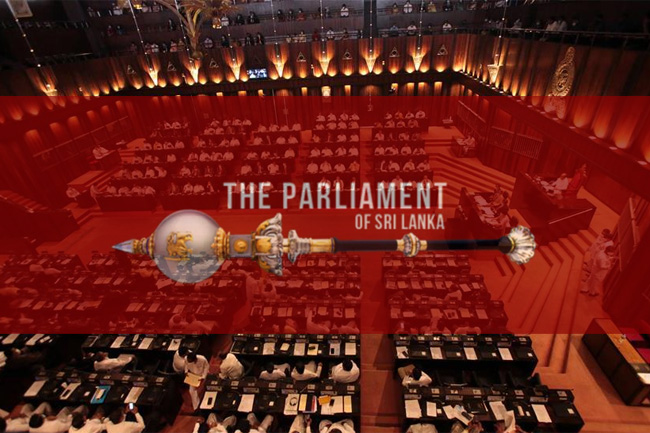The NPP, the ITAK and the Sarvajana Balaya have appointed defeated candidates to Parliament via the National List (NL), making a mockery of their much-avowed commitment to democratic best practices. This has been the name of the game in Sri Lankan politics all these years and one of the main reasons for the erosion of public trust in the electoral process.
The NPP deserves praise for the appointment of a person with a visual disability to Parliament for the first time in Sri Lanka’s parliamentary history. It has fulfilled a long-felt need. Sadly, it has added not just a smidgeon but a scoop of cow dung to the proverbial pot of milk by appointing two of its defeated candidates as NL MPs.
It is said that in this country, in times of yore, some men were tricked into marrying not-so-attractive elder sisters of the women they were betrothed to. Times have changed and this kind of trickery is no longer heard of in matrimonial affairs, but a similar practice prevails in Sri Lankan politics; individuals other than those presented as NL nominees to electors are appointed MPs, and, worse, even total outsiders are brought in to fill NL vacancies, which are often created artificially.
Strangely, the Constitution and the Parliamentary Elections Act provide for undermining the people’s franchise in this despicable manner. As we have pointed out in previous editorial comments, Article 99A of the Constitution allows ‘the persons whose names are included in the lists submitted to the Commissioner of Elections … or in any nomination paper submitted in respect of any electoral district by political parties or independent groups at that election’ to be appointed to Parliament via the NL. In 1988, the then UNP government introduced Section 64 (5) of the Parliament Election Act, inter alia, as an urgent Bill, eroding the essence of the constitutional provisions pertaining to the NL.
The Parliamentary Elections Act of No 1 of 1981, as amended in 1988, allows ‘any member’ of a political party to be appointed to fill an NL vacancy. After parliamentary elections, political parties appoint their NL members, as prescribed by the Constitution, and thereafter engineer NL vacancies to bring in persons of their choice as MPs. It is not possible to have this highly undemocratic practice terminated by judicial means because there is no constitutional provision for the post-enactment judicial review of legislation. This ‘smuggling tunnel’, as it were, must be closed by Parliament itself.
Worryingly, it has now been revealed that the words, ‘any member’, were surreptitiously incorporated into the Parliamentary Elections (Amendment) Act after its ratification by Parliament in 1988!
Not everything the Constitution and other laws provide for is morally right and acceptable. The 18th constitutional amendment, which enhanced the executive powers of the President and removed the presidential term limit, had to be abolished because it was found to be detrimental to democracy. The 20th Amendment to the Constitution was done away with on the same grounds. Therefore, the flawed legal provisions that undermine the people’s franchise and sovereignty must be scrapped without further delay.
We suggest that Article 99A of the Constitution be amended to scrap the phrase, ‘in any nomination paper submitted in respect of any electoral district by political parties or independent groups’, and the words, ‘any member’ be removed from the Parliamentary Elections Act. This is something the NPP, which came to power, promising good governance, ought to do on a priority basis.
Given the shameful NL appointments at issue, it may not be difficult to imagine what the situation would have been if there had been no preferential vote mechanism; political party leaders would have had carte blanche to ensure the entry of unsuccessful candidates in their good books into Parliament at the expense of the deserving ones against the will of the people. That would have led to what is called the dictatorship of party leaders. Needless to say, an electoral process based on the proportional representation system without provision for voters to indicate their preferences for candidates will be antithetical to democracy. Hence the need to defeat efforts being made in some quarters to abolish the preferential vote.


